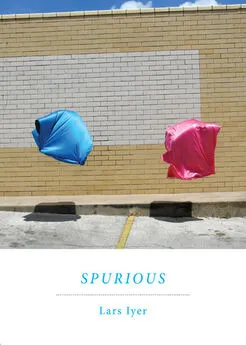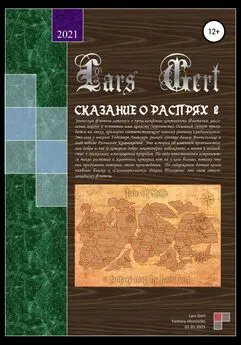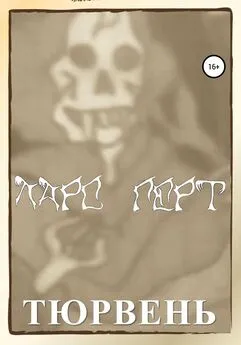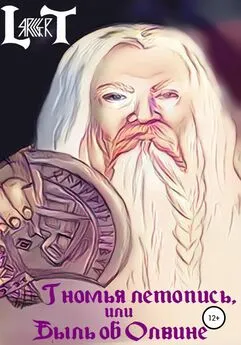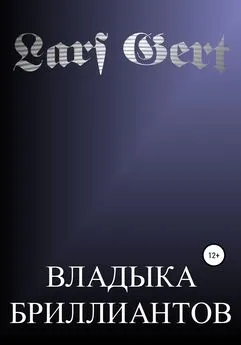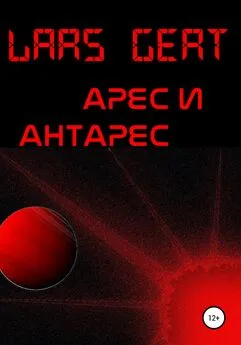Lars Iyer - Spurious
- Название:Spurious
- Автор:
- Жанр:
- Издательство:Melville House
- Год:2011
- ISBN:нет данных
- Рейтинг:
- Избранное:Добавить в избранное
-
Отзывы:
-
Ваша оценка:
Lars Iyer - Spurious краткое содержание
In a raucous debut that summons up Britain's fabled Goon Squad comedies, writer and philosopher Lars Iyer tells the story of someone very like himself with a "slightly more successful" friend and their journeys in search of more palatable literary conferences and better gin. One reason for their journeys: the narrator's home is slowly being taken over by a fungus that no one seems to know what to do about.
Before it completely swallows his house, the narrator feels compelled to solve some major philosophical questions (such as "Why?") and the meaning of his urge to write, as well as the source of the fungus… before it is too late. Or, he has to move.
Spurious - читать онлайн бесплатно полную версию (весь текст целиком)
Интервал:
Закладка:
He can see more, says W., and he can also see himself in the context of the whole. He can see the great achievements of the past heaving up behind him like a plateau, and the open space from which great achievements will come in the future. And he can see his own inability to contribute in any way to these achievements, and that, indeed, he is a living obstacle in his body and soul to anything that might happen.
If W.’s on his dung heap perched up and looking around like a meerkat, he says, I’m still playing in the dung. What could I understand of achievement or failure or any of these issues? W. says. What can I understand of the magnitude of our failure?
‘What do you think your effect is on others?’, W. asks. ‘Do you motivate them, inspire them, spur them on? Do you make them think more than they could think on their own? Does the fact of your friendship change the way in which they see the world or vice versa?’
Every time he meets someone (except me), W. asks himself how he could have been kinder, better and more gracious. Every time he thinks of his friends (except me), he asks himself what he might do to help them or to look after them better; he asks himself what he might do to further their thought or their writing.
‘What does friendship mean to you, really?’, W. asks. ‘Do you think you’re capable of it? Do you think you’ve ever been a friend to anyone? Can you even conceive of what being a friend might mean?’: these questions constantly pass through his head, W. says, as he knows they do not pass through mine.
Friendship makes the highest demands upon him, says W. It’s a kind of test. It’s the only chance for him, friendship, says W.; that and love. Love and friendship are the only things that might redeem him, W. says. — ‘And what about you?’, he says. ‘How will you redeem yourself? What are you going to do to repent for your miserable existence?’
W., as usual, is reading about God. God and mathematics, that’s all he’s interested in. Somehow everything has to do with God, in whom W.’s not capable of believing, and mathematics, which W. is not capable of doing. And he’s reading about God and mathematics in German, W. says, which means he doesn’t really understand what he doesn’t really understand. He’ll send me his notes, W. says, they’re hilarious.
W.’s going to write on God, he says. And messianism. How are my studies of messianism coming along? W. asks me. And then: Should we really be writing about messianism? In fact, that’s how he’s going to begin his essay on messianism: by saying he is in no way qualified to write on messianism.
But what about God? He’s not really qualified to write about God either, W. says. God least of all. How could he, W., write about God? — ‘Of course it’s all a joke to you’, W. says. ‘You’ll write about anything — anything! You’ve no shame. Nothing inside you prevents you from parading your ignorance’.
W. wants to believe in something, he says, but he believes in nothing. — ‘It’s a game to you’, he says. ‘Messianism, God: what meaning can they possibly have for you?’ How am I going to begin my essay on messianism?
It’s beyond masochism in my case, W. says. It’s not that I want to punish myself by parading my ignorance, or not merely that, he says. It’s something cosmic, he says. There’s something cosmic streaming through me. There’s a cosmic storm howling through my ignorance and my shamelessness, says W.
He blames me for everything, W. says. Somehow this is all my fault. — ‘You’re dragging me down’, W. says, ‘everybody says so’.
But then perhaps some part of him wants to be dragged down, W. has to concede that. But I am dragging him down even more quickly than he would want to be dragged down, he says. It’s cataclysmic. How could he have guessed at the humiliations that lay before him? How could he have known?
But then, too, he must have wanted to humiliate himself in some sense, even as he was drawn to me as the means of that humiliation. What crime has he committed? Why did he want to place himself on trial? His immense sensation of guilt is mysterious, W. says, but it led him straight to me, his judge, his guillotine.
Overpraise is the answer, W. says. We should only speak of each other to others in world-historical terms, he’s always been insistent on this. These are dark times, after all. No one’s safe. — ‘These are the last days’, W. says. ‘No one could think otherwise’. And then, ‘It’s all shit, it’s all going to shit. It will always have already been shit’, W. says, as I take a photo of him by an evangelist with a placard saying end times .
Overpraise is all we have, W. always says, that and sticking together. We have to be a pack, a phalanx prepared to die for one another. — ‘I’d die for you’, says W., quite serious. ‘What about you — would you die for me?’ That’s what friendship demands, says W. Of course, I would never say I would die for him, says W. He knows me. I’m incapable of that kind of sincerity. Or love. I’m incapable of love, W.’s always been insistent upon that.
In a moment, I would break the phalanx and be off somewhere else. I’d betray him straight away, W. says. Whereas he’s always been very careful to overpraise me to others, he says. You have to. There are enemies everywhere, he says. I have enemies and so does he. And then there’s the whole system, says W., which creates enemies instead of friends and enemies of friends. Betrayal is his greatest fear, says W.
How’s the damp? W. asks me on the phone. The plumber says he’s seen nothing like it, I tell W. The brick’s crumbling, he said. And if it crumbles? The flat upstairs will come down on top of this one, that’s what he said. But then my flat is slowly tilting into a mineshaft, into which they might both disappear. It’s like being on a ship, I tell him, when it tilts one way as it rides the waves. But it never rights itself. It’s always leaning to starboard. In any case, I’m fit for nothing anymore, I tell W., except rocking back and forth as the mildew spores float around me and the slugs leave trails on the wooden floors.
Then there’s the leak below the house, I tell W. You can hear the water streaming. The plumber said it might be spraying up into the walls, and that that might be the cause of the damp. It’s like acid, the plumber said, it’s eating the brick away. I should do something about it. — ‘Can you hear it?’, he said, turning off the stopcock, and going up to the flat above mine to turn off their stopcock. ‘Well, can you?’ And he’s right. There’s a great streaming, a rushing. Water somewhere close and rushing, spraying up into the wall and rotting it from within.
The plumber pitied me so much I had to press money on him, I tell W. He didn’t want to take it. He’d never seen anything like it, he said, standing, looking up at the ceiling. He seemed hypnotised. He wouldn’t leave, but just stood there, looking. And even when he went out the front door, he was still shaking his head. — ‘Howay, it’s terrible, man’.
Meanwhile, I throw out my pots and pans, which are rusting in the kitchen. Nothing is salvageable. The tins in the cupboards rust into the shelves. The washing powder box has liquefied. The walls, once a new, replastered sand, have turned deep brown, and in places, green. All along the window ledge: deep green. What horror! And small snails sometimes fall through the hole in the ceiling, I tell W., but I don’t mind that.
And there’s mildew, mildew everywhere, spreading, its spores drifting through the air. Perhaps I’ll become tubercular, I tell W., and that will be the making of a true European intellectual. But in truth, when I cough — and I do have a hacking cough that won’t leave me — it drives the few thoughts I have from my head, I tell him. W., who is also ill, is likewise disappointed with his cough. He’s just ill, he says, and it doesn’t help with his thinking.
These are truly the last days, W. says, over honey beer in Cawsands. How long do we have left? — ‘Oh, not long. We’re fucked, everything’s fucked’. This as we look out to sea. — ‘But we’re essentially joyful’, says W., ‘that’s what will save us’. And then, ‘Actually, it won’t — we’re too stupid. We’ll be the first to go under’.
Where did it all go wrong? muses W. We both know the answer: literature! If only we understood mathematics! If only we were mathematically inclined!
W. has books about maths, and every year he tries to read them. — ‘I can never do differential equations’, he says. It’s like Greek: every year he tries to learn the language, but falls at the aorist. — ‘The aorist breaks me every time’, says W. We list the names of our friends who are mathematically inclined, and sigh. — ‘They’ll amount to something’, says W., ‘we won’t’.
But what we do have, says W., is joy. We are essentially joyful. I agree. — ‘We are content with very little’, W. says, ‘it doesn’t take much to keep us happy’. The inane are happy, we agree. We are quite content, as idiots are. — ‘I think that’s what you’ve given me’, says W., ‘idiocy’.
We’ve always known our limitations, W. and I agree, which is very different from accepting them. In fact, our entire lives have been concerned with not accepting our limitations, and battering ourselves against them like moths against a window.
Our limitations fascinate us, we agree. From the first, we aimed ourselves against them, in defiance not of the world that expected something from us, but of our own expectations.
Of what did we think we were capable? From whence came that ferocity of hope? Ours is a very pure kind of idiocy, we agree. We’re idiots, we agree, idiots who do not quite understand the depths of their idiocy. We’re mystics of the idiotic, we agree, mystical idiots, lost in our cloud of unknowing.
Idiocy, that’s what we have in common. Our friendship is founded upon our limitations, we agree, and doesn’t travel far from them.
We’re full of joy, W. says as we walk back from the supermarket, that’s what saves us. Why do we find our failings so amusing? But it does save us, we agree on that; it’s our gift to the world. We are content with very little: look at us, with a frozen chicken in a bag, and some herbs and spices, walking home in the sun. The gift of laughter, I say. — ‘The gift of idiocy’, says W.
‘These are truly the last days …’ W. is making me listen to Godspeed’s Dead Flag Blues again. ‘Shut up and listen’. He plays this to the students, he says. And he makes them watch Béla Tarr. That’s what he calls teaching, he says.
The last days! What are we going to do? — ‘We’ll be the first to go under’, says W., ‘we’re weak. Gin?’ Yes to gin, no to the apocalypse. What time is it? Already late, though you can never be sure in the shuttered living room.
Rosenzweig wrote the entirety of The Star of Redemption on postcards to his mother, W. says. All of it, every line, from the Macedonian front, where he was fighting. Admittedly, there wasn’t much to do at the Macedonian front — that’s not where the big battles were, but nevertheless. An entire book! Written on postcards! One after another! To his mother! W says.
Rosenzweig! He’s the measure of all things to us. The measure of commitment (he meant every word!). The measure of religiosity. The measure of integrity. He turned his back on the university! says W. He devised a new form of educational institution! He taught young Jews … He lived what he thought. He acted on what he thought, which is inconceivable to us now (as is even the capacity to think).
Читать дальшеИнтервал:
Закладка:
